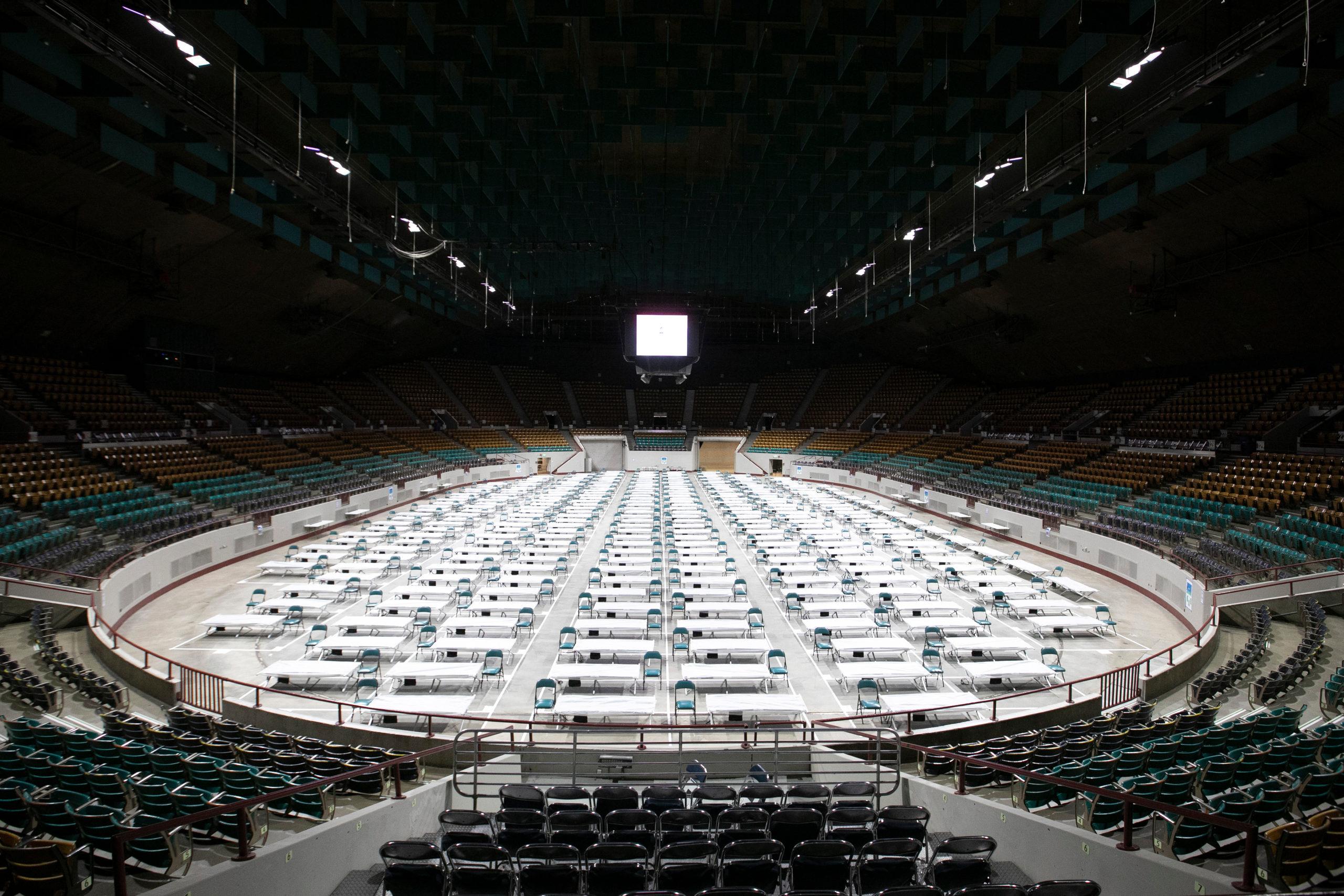The city-owned Denver Coliseum has been transformed into a 24-hour shelter for women experiencing homelessness during the novel coronavirus outbreak.
"We will have room for up to 300 women and transgender individuals," Britta Fisher, who heads the city's housing department, said at a news conference a few hours before the shelter was to open Monday.
A similar facility has sheltered at least 600 men every night since opening April 9 in the nearby National Western Complex in Elyria-Swansea. Staffing issues had delayed opening the women's site.
The new sites have meal and health services and are equipped with portable showers and cots. They also allow more room for the social distancing that health experts say is necessary to slow the spread of the coronavirus. Fisher said Catholic Charities of Denver was suspending services and bringing to the Coliseum guests and staff from an overnight emergency women's shelter it had operated. The Delores Project was sending some guests from its small overnight shelter to the Coliseum, allowing it to offer more room to its guests, Fisher said.
"We are grateful for the city of Denver's support and for our area shelter providers continuing collaboration to make this a safer and healthier shelter option for women experiencing homelessness," Mike Sinnett, vice president of shelter services for Catholic Charities of Denver, said in a statement.
Catholic Charities of Denver said it would be the lead operator at the Coliseum shelter and had hired 12 temporary workers to help. Catholic Charities' overnight emergency shelter and a transitional program at the Park Hill site where operations were suspended had accommodated up to 250 women. Catholic Charities said another women's shelter at its Samaritan House downtown will remain open for women who are mobility impaired.
The city's Fisher could not say how long the shelters at the Coliseum and the National Western Center would be open. "Exit strategy is something that we continue to discuss," she said.
Across the country, the coronavirus outbreak has led to the cancellations of events such as the circuses and sports championships the Coliseum hosts. Mass gatherings are unlikely to resume anytime soon, though an easing of some of the restrictions imposed to contain the coronavirus is likely in coming weeks in Denver.
The Colorado Coalition for the Homeless is providing medical care, including testing for COVID-19, the disease caused by the coronavirus, for people experiencing homelessness sheltering at the Coliseum and the National Western Complex. Cathy Alderman, the coalition's vice president of communications and public policy, said that as of Monday morning her organization had tested 357 people and found 66, or 18 percent, positive results. Results from 13 tests were pending Monday morning.
The coalition has little capacity for testing people who are not showing symptoms such as fever, though it has recently started testing some people who don't show signs but are considered at high risk of developing serious illness if they are infected with COVID-19. Not all of those that the coalition tests are experiencing homelessness, but many are and the proportion of those experiencing homeless has grown since it began testing at the National Western Complex and will grow even more with testing starting at the Coliseum.
Earlier this month in Boston, where COVID-19 tests for people experiencing homelessness also had been limited to those with fevers, one shelter got concerning results when it tested everyone. Of the 397 people tested at that shelter, none of whom had symptoms, 146 -- 36 percent -- tested positive.
"If that rings true in Boston, there's no reason why it wouldn't ring true here," Alderman said.
She added the Boston results underscored the need for more testing among people experiencing homelessness not just in Denver, but across the state. She said her coalition could not do that alone.
"This is where we would have to have the assistance of either the National Guard or public health' staff," she said.














